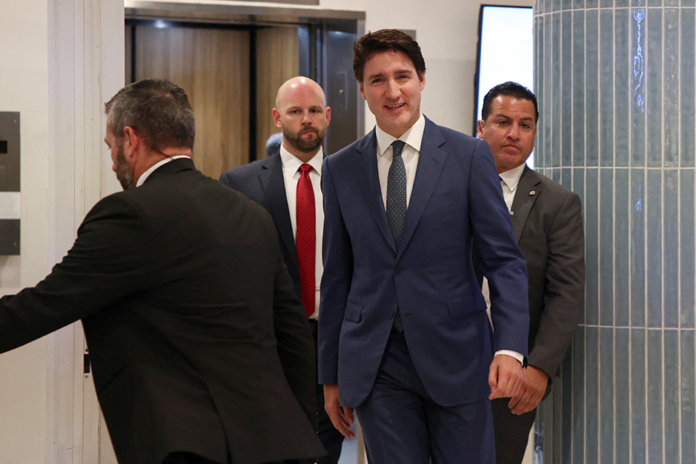The notion floated a couple of weeks ago by President-elect Donald Trump that to avoid tussles over tariffs the United States might want to annex Canada warrants more than a passing snicker, eh.
His overture recalls a similar idea that he propounded during his first administration to acquire Greenland, which never was seriously pursued.
But this one might have more legs.
Purchasing the nation to the north would more than slightly double the United States land mass and make the U.S. the largest country on the globe — unless the Russians try to militarily annex more land from its neighbors. The acquisition would also add another 40 million people to the population, an 11% increase.
But one wonders where the money would come from for such a transaction. Elon Musk and Vivek Ramaswamy would shudder as they try to reach their goal of cutting $2 trillion from the federal budget through their (so-far unofficial) Department of Government Efficiency (DOGE).
It would take a major financing arrangement with a consortium of lenders; maybe the growing number of billionaires that the incoming president is tapping for his cabinet or high positions in his next administration can pitch in some spare change to underwrite the purchase.
But rather than buying land, it might be a better seller’s market.
Trump administration II might consider raising money to reduce the amount the DOGE duo pledge to slice. It could begin by putting on the market a number of blue states that lean Democratic, like those in New England and along the Atlantic Coast corridor that are stocked with Democrats. Canada might be an interested buyer for the territory from the tip of Maine through Virginia. That would include Washington, D.C., which could remain intact through a lease-back arrangement.

The Canadians might also want to pick up Minnesota, a reliable blue state with some streaks of purple, and maybe snare bordering Wisconsin and Michigan, which vacillate from blue to red in national politics. Moving westward, it could buy Oregon and Washington, two states carved out of territory that the U.S. acquired from Great Britain before Canada gained its independence from that country.
To the south, Mexico might be in the market to purchase the land it lost in military conflicts with the U.S. nearly two centuries ago — especially California — and maybe the southwest border states that went north as a result of those skirmishes, even red ones like Texas, blue New Mexico, and purple Arizona and Nevada.
In addition to ridding itself of some politically-adverse jurisdictions, the cash infusion from these transactions and the money saved from having to provide social services and benefits to those states and their residents could be worth trillions to this country.
With those deals, Musk and Ramaswamy might be able to supplement the federal coffers to pay for the programs that fall prey as they undertake their cost-cutting endeavor.
Marshall H. Tanick is a constitutional and employment law attorney with the Twin Cities law firm of Meyer Njus Tanick.
